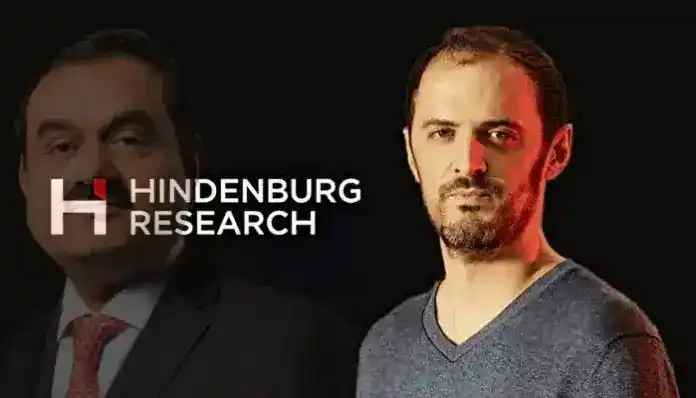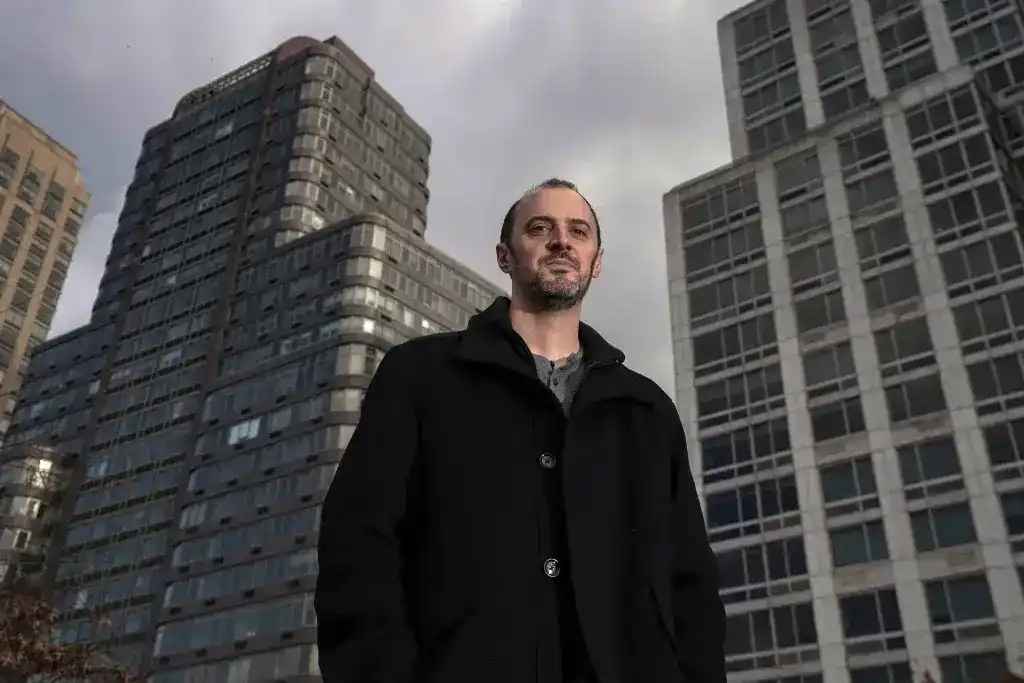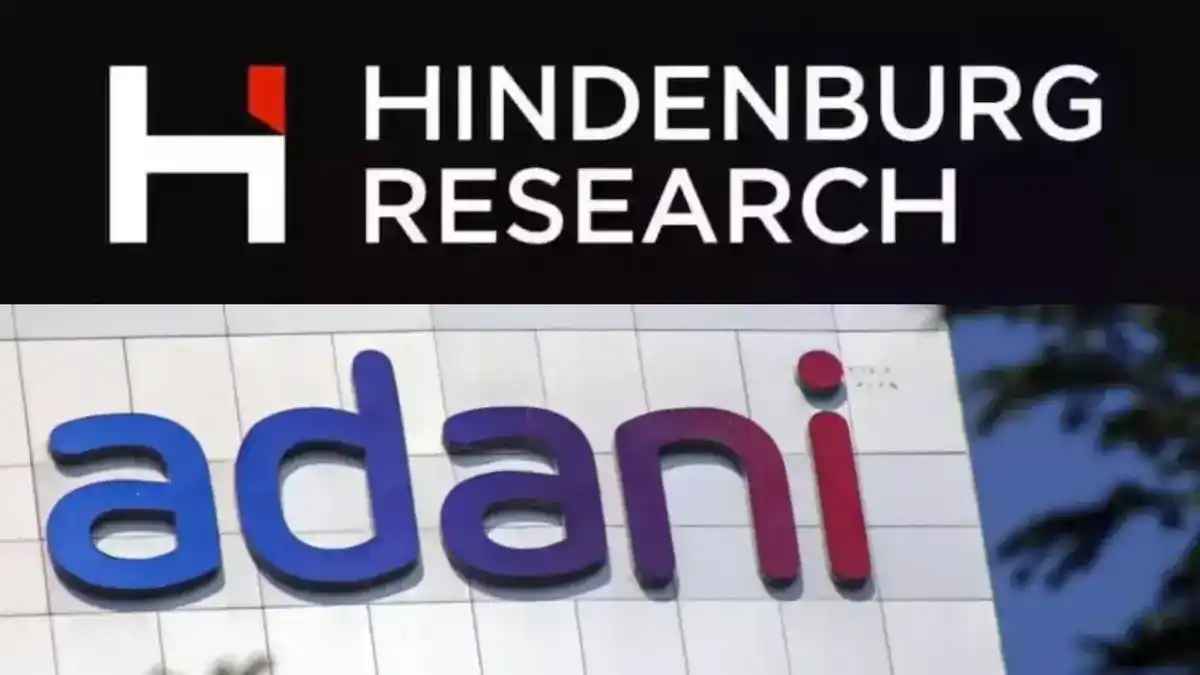Nate Anderson's Hindenburg Research Shutdown: Adani Impact News
Updated on : 16 January, 2025

Image Source: google.com
Introduction
On January 15, 2025, Nate Anderson, the founder of Hindenburg Research, announced the disbandment of the firm that had made headlines for its high-profile short-selling reports targeting major corporations. This blog delves into the background of Anderson and Hindenburg Research, the reasons behind its closure, the market's reaction, and the implications for the future of short selling.
Nate Anderson: The Man Behind Hindenburg Research

Image Source: google.com
Nate Anderson founded Hindenburg Research in 2017, naming it after the infamous Hindenburg airship disaster to symbolize his firm's mission to identify companies at risk of catastrophic failure. With a background that lacked traditional finance credentials, Anderson's journey was fueled by a passion for uncovering corporate malfeasance and a commitment to transparency in financial markets. For more on his background, see this profile on Times of India.
Anderson's approach combined rigorous research with a keen understanding of market dynamics. His work garnered attention for its thoroughness and often led to significant repercussions for targeted companies, including investigations by regulatory bodies.
Background on Hindenburg Research
Hindenburg Research quickly gained notoriety for its impactful reports on various firms, particularly in the technology and electric vehicle sectors. Notable cases include:
Popular Blogs
-
Nikola Corporation: In 2020, Hindenburg accused Nikola of misleading investors about its technology and capabilities. This report led to a government investigation and significant penalties for the company. More details can be found in this Business Standard article.
-
Adani Group: In January 2023, Hindenburg released a report alleging stock manipulation and accounting fraud by the Adani Group, resulting in a staggering $150 billion loss in market value. For an overview of this case, refer to this Economic Times report.
Hindenburg's reports often preceded formal investigations by regulatory agencies, highlighting the firm's role as a watchdog in financial markets.
Announcement of Shutdown
Nate Anderson's Farewell Note:
As I’ve shared with family, friends, and our team since late last year, I have made the decision to disband Hindenburg Research. There is not one specific thing—no particular threat, no health issue, and no big personal issue. I want to focus on my personal life and share our investigative techniques with others in the field.
The decision to shut down Hindenburg Research was announced by Anderson on January 15, 2025. He indicated that this decision had been in the works for some time and was not prompted by any specific threat or personal crisis. Instead, he expressed a desire to conclude operations after completing their ongoing investigations.
In his farewell note, Anderson reflected on his experiences at Hindenburg Research and acknowledged that running the firm had taken a toll on his personal life. He emphasized that he now viewed Hindenburg as a chapter in his life rather than a defining aspect of his identity. For further insights into this announcement, check out this Firstpost article.
What Were the Main Reasons for the Shutdown of Hindenburg Research?
Several key factors contributed to Anderson's decision to disband Hindenburg Research:
-
Completion of Investigative Goals: Anderson stated that they had finished their pipeline of ideas and investigations. With this completion, he felt it was an appropriate time to wind down operations.
-
Personal Well-being: The intense demands of running Hindenburg had affected Anderson's health and personal life. He expressed a need for balance and time with family after years of dedication to the firm.
-
Legacy and Impact: Reflecting on their achievements, Anderson noted that nearly 100 individuals had faced civil or criminal charges as a result of their investigations. He felt fulfilled by this impact but recognized it was time to move on.
-
Future Aspirations: Anderson plans to create educational content based on Hindenburg's research methodologies over the next six months, aiming to share insights with others interested in financial investigations.
For more details on these reasons, see this article from The Wire.
Market Reaction to Shutdown
The announcement of Hindenburg's closure elicited significant reactions from the market. Following the news:
- Adani Group Stocks Surge: Shares of Adani Group companies experienced substantial gains, with increases reaching up to 9%. This rebound reflected a shift in investor sentiment as fears surrounding Hindenburg's reports dissipated.
| Company Name | Stock Price (Rs) | Percentage Increase |
|---|---|---|
| Adani Power | 599.90 | 9% |
| Adani Green Energy | 1,126.80 | 8.8% |
| Adani Enterprises | 2,569.85 | 7.7% |
| Adani Total Gas | 708.45 | 7% |
| Adani Ports | 1,190 | 5.5% |
This surge indicates that investors were relieved by the closure of a firm that had previously cast doubt on Adani’s business practices.
For additional context regarding market reactions, refer to this Adda247 article.
Hindenburg's Impact on Adani Group

Image Source: google.com
Hindenburg Research's report on the Adani Group in January 2023 marked a pivotal moment for both entities. The allegations made by Hindenburg led to severe consequences for Adani:
-
Market Value Loss: The report triggered a massive sell-off in Adani stocks, wiping out approximately $150 billion in market value.
-
Regulatory Scrutiny: The allegations prompted investigations from various regulatory bodies, putting additional pressure on Adani’s operations.
Despite these challenges, Adani Group has consistently denied all allegations made by Hindenburg and has worked towards recovering its market position.
For more information about how these events unfolded, check out this Wikipedia entry.
Adani Group Stocks Surge
Following the announcement of Hindenburg’s shutdown, Adani Group stocks rallied significantly:
-
Investor Sentiment: The closure alleviated fears among investors regarding ongoing scrutiny from Hindenburg.
-
Market Recovery: The immediate rebound in stock prices reflects confidence returning to investors who may have been hesitant due to past allegations.
The surge in stock prices illustrates how closely tied investor sentiment is to perceptions of corporate integrity and market stability.
For further analysis on stock movements post-announcement, see this Economic Times article.
What Are Nate Anderson's Plans for the Future After Shutting Down Hindenburg Research?
After shutting down Hindenburg Research, Nate Anderson has outlined several plans:
-
Educational Initiatives: Over the next six months, he intends to produce videos and materials detailing Hindenburg’s research methodologies. This effort aims to educate others about investigative practices in finance.
-
Personal Time: Anderson expressed a desire to focus on his personal life and spend more time with family—an aspect he felt had been neglected during his tenure at Hindenburg.
-
Support for Former Team Members: He plans to assist former colleagues as they transition into new roles or potentially start their own research firms.
-
Open-Source Contributions: By sharing insights into their investigative processes openly, Anderson hopes to inspire future generations interested in financial research.
For more details about his future plans after shutting down Hindenburg Research, refer to this Current Affairs article.
Future Implications for Short Selling
The closure of Hindenburg Research raises questions about the future landscape of short selling:
-
Market Dynamics: Other firms may feel emboldened or deterred based on Hindenburg’s experiences with high-profile targets like Nikola and Adani.
-
Regulatory Environment: Increased scrutiny from regulators may affect how short-sellers operate moving forward.
-
Educational Opportunities: With Anderson’s plans to share methodologies publicly, there may be an increase in interest among new entrants into short selling and financial investigations.
For insights into potential changes in short-selling practices following this event, see this Business Standard article.
Conclusion
The shutdown of Hindenburg Research marks a significant moment not only for Nate Anderson but also for the broader financial landscape. As he transitions into new endeavors focused on education and personal well-being, the implications of this closure will continue to resonate within investment communities and among companies once targeted by short-selling campaigns.
The legacy left behind by Hindenburg Research serves as both a cautionary tale and an inspiration for those committed to transparency and accountability in financial markets.















